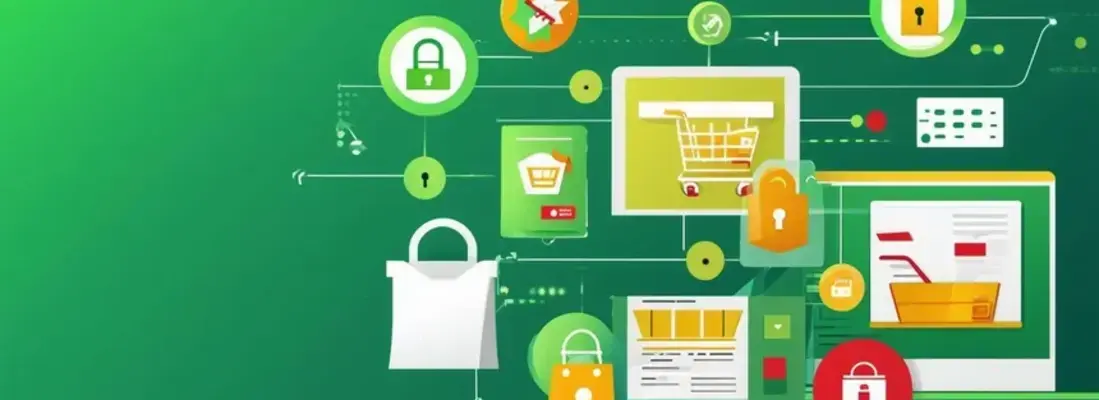Evolution of Self-Storage Units to Meet Demands of Digital Security
Date: 17 January 2025

With the continuous evolution in the digital space, the need for security and reliability is further developed in storage facilities. For a long period, the storage units have traditionally been related to the storage of personal and business items.
In this article, the evolution of self-storage facilities is argued in regards to digital data security. The increase of cloud computing and the increase in demand for secure data storage options both encouraged the evolution of digital storage.
Today, storage units no longer need to be filled with physical items but are embracing technology so that every digital file, from personal documents down to business data, can be stored safely and securely. This shift represents a quantum leap into the future, whereby not only individuals but also businesses can protect their digital assets with methods that have been brought up to date with modern standards of security.
This blog goes in-depth into how self-storage units are changing to accommodate better protection of digital data.
The Rise of Digital Storage
In recent years, digital storage solutions have become increasingly important due to the growing reliance on technology. Individuals and businesses alike generate vast amounts of data daily, creating a need for secure and easily accessible storage.
As digital data becomes more valuable, the demand for reliable storage options has surged. Self-storage facilities are now evolving to meet these needs by providing more than just physical storage. For example, 24/7 storage facilities Warwick, RI are incorporating advanced technology to store not just personal items but also digital assets.
This shift ensures that data, from personal documents to sensitive business information, is kept safe and easily accessible at all times. The transition to digital storage solutions allows users to take advantage of the security and flexibility that modern technology offers while keeping their information protected from cyber threats.
Statistics: 60% of businesses now use some form of digital storage, increasing the need for secure and accessible data solutions.
Advanced Security Features
As the need for digital storage grows, so does the importance of keeping that data secure. Self-storage units are embracing cutting-edge security features to protect sensitive digital files from cyber threats and unauthorized access. Traditional lock-and-key systems are being replaced with more advanced measures such as biometric access, facial recognition, and smart access codes, ensuring that only authorized individuals can enter the units.
Additionally, many self-storage facilities are now equipped with 24/7 security cameras, motion detectors, and security personnel, further safeguarding both physical and digital assets. These security features help ensure that data remains protected from theft, tampering, and cyberattacks. Moreover, many facilities offer encrypted data storage, ensuring that digital files stored in these units remain secure while being transferred or accessed. These advancements in security are transforming self-storage from a simple space for physical items to a modern, high-tech solution for protecting digital data.
Historical Note: The concept of secure storage dates back to ancient civilizations, where valuables were stored in guarded vaults or temples. Today, with the rise of the digital age, self-storage facilities are continuing this tradition by modernizing their security measures to safeguard both physical and digital assets.
Climate-Controlled Data Storage
As digital storage needs evolve, one of the most important considerations is how environmental factors can impact data security. Just like physical documents or materials, digital data can be vulnerable to extreme temperatures and humidity levels, which can cause corruption or loss. To address this concern, self-storage facilities are increasingly offering climate-controlled units that provide optimal conditions for storing digital assets. These units regulate temperature and humidity to ensure the safety of sensitive files.
Here’s how climate-controlled data storage benefits digital assets:
- Protects digital files from heat and humidity, which can damage electronic devices.
- Ensures that storage devices, like external hard drives, remain in optimal condition.
- Creates a more stable environment for long-term data preservation.
By offering climate control, self-storage facilities ensure that digital data is protected from environmental factors, giving users peace of mind knowing that their information is safe and secure for the long haul.
24/7 Remote Access
Yet another benefit setting the pace for modern self-storage facilities is that the data stored with them is accessible from anywhere and at any time of the day. Complementing this growing demand for flexibility, users can access their digital files anytime from literally anywhere. This becomes an indispensable option in companies requiring updates to essential documents, especially frequently, or which are maintained out of town. Full-access self-storage services allow users to retrieve or update their data without restriction of physical location or office hours. Also, remote access enables a business to monitor their data, track its usage, and ensure its security literally any moment.
Moreover, many facilities allow cloud-based access, which greatly facilitates users gaining immediate, secure access with their data through the means of a web or mobile application platform. In essence, this affords the user with freedom regarding time zones or business hours. For personal or corporate needs, such power of 24/7 access will keep those users connected when necessary for productivity or security.
Integration with Cloud Services
Self-storage units are evolving to meet the demands of modern technology by integrating with cloud services. This integration allows users to store and manage their digital assets in both physical and cloud-based systems, offering greater flexibility and convenience.
By combining self-storage with cloud services, users can benefit from the following features:
- Seamless synchronization between physical and cloud storage.
- Access to digital files from multiple devices, including smartphones and tablets.
- Enhanced backup options to prevent data loss.
- Cost-effective storage solutions that scale with user needs.
This hybrid approach to storage ensures that digital data is always accessible and secure, giving users the ability to manage and protect their files in the most efficient way possible. With this integration, self-storage units offer a comprehensive solution to the growing need for both physical and digital asset security.
Adapting to Digital Security Needs
As digital security becomes more and more advanced, so, too, does the role of self-storage units in the protection of valuable data. Not only are self-storage providers buckling up to this growing demand for the protection of digital assets, but also their services must meet the highest standards of security.
Advanced technologies like biometric access, 24/7 surveillance, and encrypted digital storage have revolutionized the concept of storage. Besides this, climate-controlled units are being incorporated to keep sensitive data safe from environmental destruction. By incorporating cloud services, users can now store and access their digital files safely, thus having peace of mind.
These are just some of the innovations that show how self-storage units are moving from purely physical storage into the future of data security. Self-storage facilities are now playing an important role in safeguarding everything from physical to digital assets, be it for a business or an individual.







